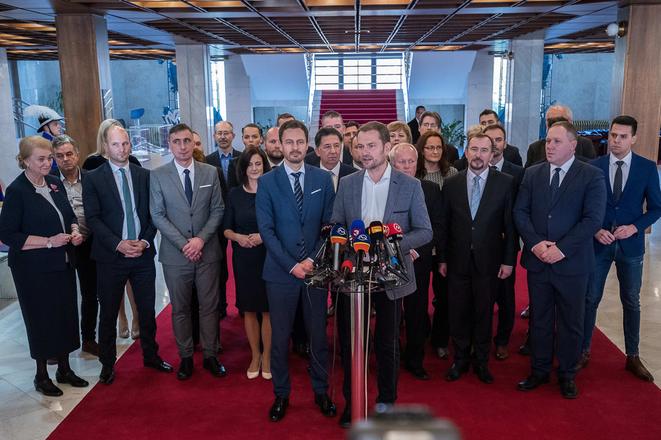The liberal worldview seemed to be gaining momentum in Slovakia last spring. First, Zuzana Čaputová was elected the first-ever female president. The party she was the deputy chair of until then, Progressive Slovakia, in coalition with the more moderate Spolu, won the European Parliament election and continued polling around 15 percent.
One year later, Slovakia has elected its new parliament and it is plain to see just from the list of elected MPs that liberal politics is not going to prevail.
Quite the contrary. Many observers have labelled it the most conservative parliament in Slovakia's modern history. One of the reasons why this is so is the failure of the Progressive Slovakia and Spolu coalition to make it to parliament by a very narrow margin – they lacked 926 votes. Their 200,000-plus votes of mostly liberal voters will thus not have parliamentary representation.
>> Read more about the 2020 parliamentary election here.
This has provoked concerns not only among the voters of PS/Spolu but also among advocates of women's rights, about which the conservatives in the parliament would vote in the agenda like abortion restrictions. At the same time, observers say the parliament cannot be expected to extend the rights of same-sex couples in any way.
Igor Matovič, the potential future Slovak prime minister, tried to dispel these concerns after his March 2 meeting with President Čaputová. Out of the 53 MPs in the caucus of his OĽaNO movement, about 10-15 are liberal-leaning, he said.
“These could represent the PS/Spolu voters,” Matovič suggested. OĽaNO is not a typical party and over his ten years in politics, Matovič has made it his trademark to compose the slate of the movement of people from different walks of life, with different opinions and worldview.


